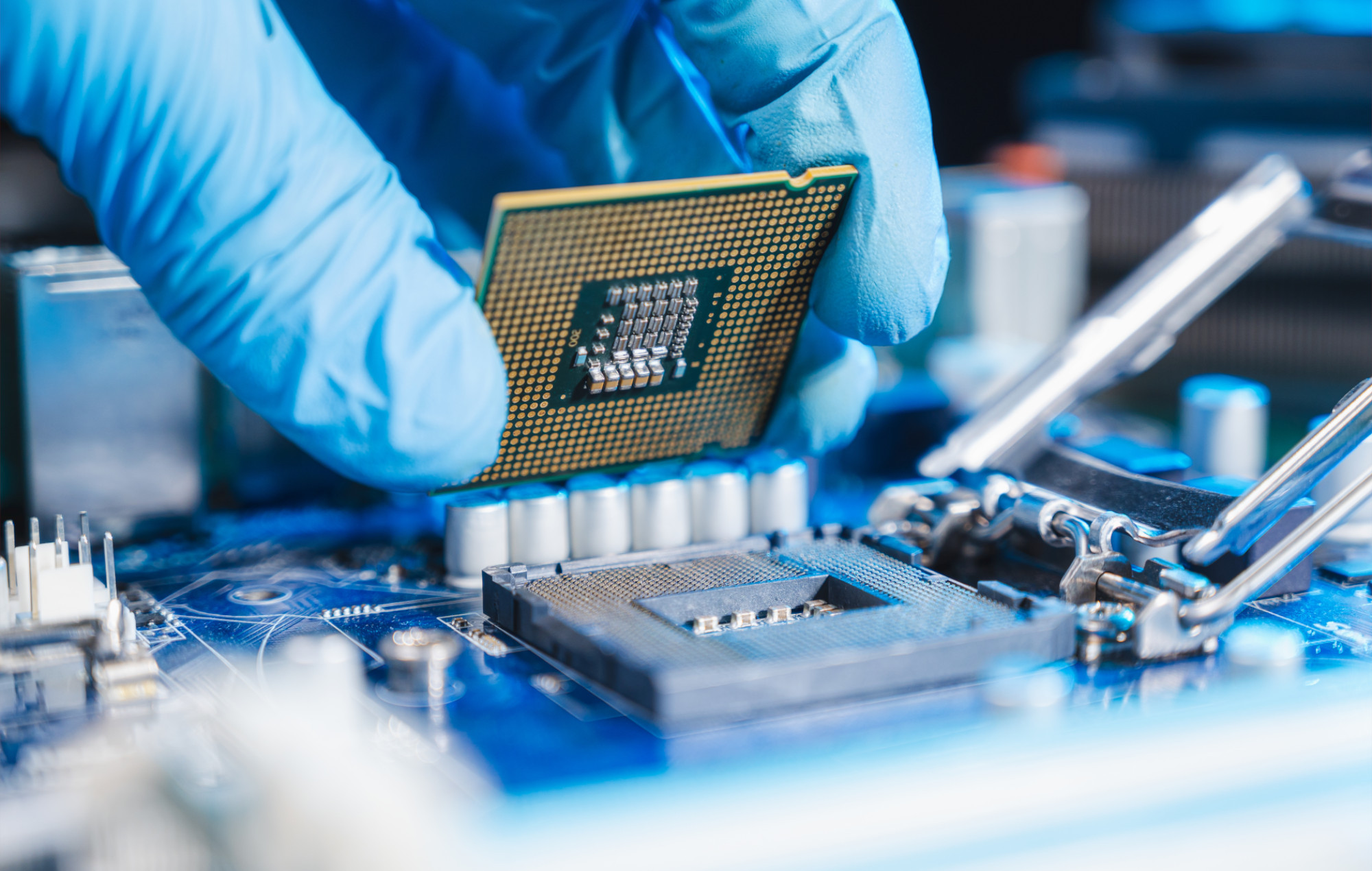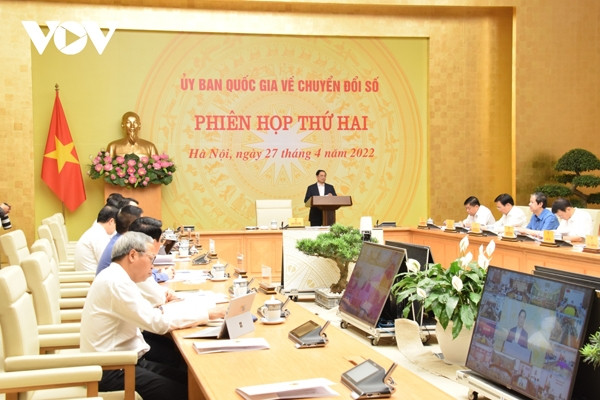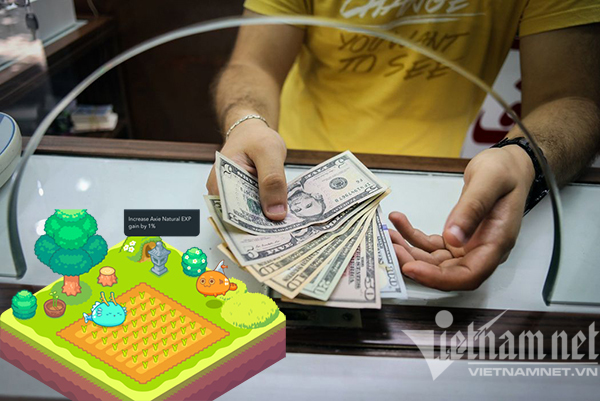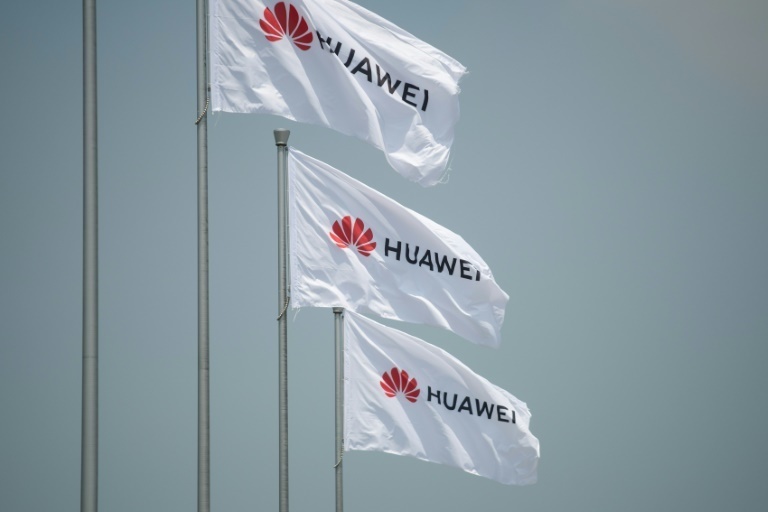Western sanctions expose Russia’s technological weaknesses
In November 2021, the technology giant Yandex introduced Chervonenkis, Russia’s most powerful supercomputer and ranked 19th in the world. Yandex uses Chervonenkis to train artificial intelligence (AI) algorithms for applications like web search and translation. It was created by linking more than 1,500 Nvidia chips together.
According to Cnews, in February, the Russian Interior Ministry admitted to having trouble finding “homegrown” chips and as a result had to switch to chips made by Intel.
Consequences of the technology embargo
Russia’s dependence on Western technology, especially chips, is at the heart of sanctions that US President Joe Biden and his allies have imposed on Russia over the war in Ukraine. Addressing the nation, Mr. Biden said a ban on Russia’s imports of critical technology, including semiconductors, would limit “financial and technological access to strategic areas of the economy and industrial capacity level in the coming years”. The embargo will affect Russia’s ability to modernize its military, aviation industry, and space program.
The US Department of Commerce prohibits domestic businesses from dealing with a series of Russian legal entities with ties to the state military. The regulation covers devices such as microelectronics, telecommunications equipment, sensors, navigation, avionics, and marine equipment.
According to Samuel Bendett, an expert on Russian technology at CAN, Russian industry as a whole benefits from the free flow of trade. The embargo will have a huge effect. For nearly a decade, the Kremlin introduced measures aimed at freeing domestic businesses and infrastructure from foreign technology, including chips. So far, however, that effort has had limited success.
Russia’s oil and gas exports give it an edge in the international arena. However, much of the military and commercial sectors depend on foreign components and technical knowledge. That’s a major and well-known weakness in the face of sanctions.

Take aviation as an example. Russia depends on aircraft parts made by Boeing and Airbus, but the two firms have stopped delivering to Russia since the Ukraine war broke out. “They can keep it going for two or three months, but at some point, they’re going to need new components,” said Tim Frye, a professor of political science at Columbia University. Not only the hardware, even the ticketing system also bears the imprint of foreign enterprises and foreign technology.
The same goes for manufacturing and computer equipment. Due to the semiconductor ban, LADA – Russia’s largest car manufacturer – announced it had to temporarily close because it did not have enough microprocessors needed to make cars.
Russian technology cannot stand alone
The US strategy parallels efforts to contain China and Chinese technology in recent years. In 2020, the White House banned chip exports to Chinese companies, including Huawei. The decision made Huawei suffer heavily as the smartphone business almost collapsed. But it also sparked an ambitious but equally difficult effort by the Chinese government to build its own powerful semiconductor industry.
In the long run, technology embargoes could accelerate the process of technology-banning as Russia, like China, seeks technological autonomy. However, up to now, Mr. Bendett said that Russian products are not good enough. “There’s no better way to restart an industry than to get rid of it,” he said.
However, it must be remembered that no country has yet achieved technological independence in general and semiconductor independence in particular. The chip itself is the product of cross-border collaboration, from design to production. For example, Baikal chips use Russian designs but are manufactured at TSMC’s (Taiwan) factory. Meanwhile, TSMC said it will respect Western sanctions, which means the possibility of disrupting chip supply to Russia.
Even the world’s leading companies like Apple cannot stand on their own. The company designed the M1 chip to put it into products but had to hand it over to TSMC to manufacture, TSMC used machines from ASML, a Dutch enterprise. That does not include stages such as licensing, patents, design, simulation, integration, robotics or material handling. If Russia is turned away by the whole world, Russian technology could be in danger.
Another problem that cannot be ignored is brain drain. Without expert hardware, quality software, no country can think of technological autonomy. As foreign companies fled the Russian market in droves, educated and skilled workers also migrated. Without the human element, Russia would not be able to reach the world-class level of technology.
Du Lam
at Blogtuan.info – Source: vietnamnet.vn – Read the original article here



